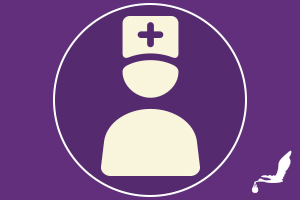
About drjohnzhang
View all posts by drjohnzhang
Dr. Zhang’s Pick Of The Month: Planning Ahead – Prescriptions for Fertility Drugs While Traveling During The Holidays
Fertility medication is often a big part of fertility care. Medication can be used to delay the start of a cycle, spur the growth of egg and to trigger ovulation. In order for a cycle to have the best chance at success, it is important that all prescribed fertility medication be taking at the time and dose indicated by the fertility care team. Failing to do so can result in the cycle being unsuccessful. Finding time and space to take fertility medication can take some maneuvering. This task can be made more difficulty while traveling during the holidays. If you have to travel during your fertility cycle and are taking medication, there are a few things Dr. Zhang at New Hope Fertility Center recommends you can do to make the process easier.
Plan Ahead
The single most important thing you can do while traveling during fertility care is to plan ahead. Start by informing your fertility care team about your travel needs. They can help you to coordinate what medications you will need during your travels. Depending on where you are in your cycle, they may also be able to coordinate getting monitored elsewhere so that your cycle does not have to stop due to your travel plans.
Planning ahead also means getting everything you need together before you travel. This means obtaining medication from the pharmacy and all the corresponding supplies you’ll need. If you are flying, pay special attention to requirements for flying with medication and syringes. You do not want to be caught off guard while going through security.
Set a Calendar
Timing is everything while administering fertility medications. Setting reminders for yourself in your phone or email can help to remind you that is time to administer medication. Staying on track is key for your cycle to continue progressing on the original schedule. Taking medication and the designated time may require that you step away to do so. If you believe this will be an issue, think of ways to excuse yourself prior to being in the company of others.
For additional tips on taking fertility medication while travelling, contact New Hope Fertility Center today. Please click the link below to enter your information and New Hope will contact you, or simply call 212-517-7676. Thank You.
How to Lose Weight Healthily After Giving Birth
After pregnancy, many women are excited to get their bodies back, but find that they are a different body than they started with. Others may want to lose the additional pounds they put on during pregnancy, but find it difficult to find the time with a new baby. The good news is, if you only put on between 25 and 35 pounds during the pregnancy that weight will be easiest to get off. Women who gained excess weight will have to work harder to shed those extra pounds. The tips below can help you to lose weight in a healthy manner after pregnancy.
Don’t Diet
Having a new baby in  the house requires a lot of effort from new mothers. Generally speaking, eating a healthy diet and adopting good food habits are enough to help women shed those extra pounds. Following a strict diet often leads to stress and can result in overeating in a binge. Additionally, not eating enough calories can actually lead to your metabolism slowing down and your body storing more fat. For nursing mothers, it is especially important to get enough calories for milk production.
the house requires a lot of effort from new mothers. Generally speaking, eating a healthy diet and adopting good food habits are enough to help women shed those extra pounds. Following a strict diet often leads to stress and can result in overeating in a binge. Additionally, not eating enough calories can actually lead to your metabolism slowing down and your body storing more fat. For nursing mothers, it is especially important to get enough calories for milk production.
Eat Healthy Foods
In order to lose weight, your diet should include fruit, vegetables and lean proteins. Adding fish, low fat milk and yogurt can provide much needed calcium. Stay away from processed foods, food that is high in fat and food that is high in sodium. All of these items are a drain on your health and can leave you taking in empty calories with no nutritional benefit.
Exercise
For new mothers, going to the gym for an hour may not be realistic. However, there are many things you can do throughout the day in order to increase your activity level. Taking a walk around your neighborhood gets you moving and helps with circulation and blood flow. Parking further away and walking a greater distance into stores can also help you get in some additional activity.
Please click the link below to enter your information and New Hope Fertility Center will contact you, or simply call 212-517-7676. Thank You.
Finding the Balance Between Work and Fertility Treatment
Fertility treatment can be a long process. There is the diagnostic phase where the root cause of the fertility issue is identified, followed by a treatment phase that requires frequent trips to the doctor’s office for monitoring. Knowing how to balance the time needs of your fertility care with your work schedule can seem like an impossible task. The tips below can help you to navigate these waters so you can pursue your dream of growing your family while managing your career.
The first step in navigating the waters of IVF and managing your workload is to understand your company’s HR policies. Read your employee handbook to determine how time of is handled and if there is a requirement for a certain amount of days’ notice prior to taking time off. Look into flex time, altered schedules and working from home. Even with an intensive schedule, it may be possible to get all of your tasks done without taking much time off. Speaking with your HR department will provide additional information and help to set your expectations.
Speak with Your Manager
It is important to be honest with your manager about your need for medical care. How much detail you provide is up to you and your relationship with your manager. Being honest about what you will be experiencing including testing and treatment procedures will help your manager to plan for your schedule. Additionally, when procedures need to be planned on short notice, your manager will be better prepared to react.
Determine Your Communication
Your coworkers may be curious about what is going on with you and your altered schedule. You are not required to provide any detail to coworkers. Determine what you feel safe talking about and know what information you want to convey before starting those conversations. Being prepared can go a long way in preventing stressful situations.
Speak with Your Care Team
If you’re having difficulty given your work schedule, speak with your fertility care team. They’ve treated many patients and have likely dealt with a number of different working circumstances. Chances are there are some ways they can help.
Please click the link below to enter your information and New Hope will contact you, or simply call 212-517-7676. Thank You.
How to Choose the Right Prenatal Vitamin
Taking a prenatal vitamin is one of the best ways to ensure your body gets the additional vitamins and minerals it needs during pregnancy. While they do not replace healthy eating habits, taking a prenatal vitamin can help to avoid complications that arise due to vitamin deficiency. With so many prenatal vitamins on the market, choosing the right vitamin for your needs may seem difficult. When evaluating your vitamin options, be sure to look for the following:
Folic acid is a key vitamin as having adequate levels are important for avoiding neural tube birth defects, including spina bifida. Look for a vitamin that provides at least 400 mcg of folic acid in a dose.
Iron
Iron is important for producing red blood cells within the body. Because both mother and child will be pulling for a woman’s iron reserves, using a prenatal vitamin with at least 27 milligrams of iron is key. Not getting enough iron can result in a pregnant woman developing anemia.
Calcium
Calcium is necessary for the body to keep bones strong, including the teeth. As your baby develops, they will also need calcium in order to assist with the formation of their bones. If you do not get enough calcium in your diet while pregnant, it can have significant medical impacts. If there is not adequate calcium in the body it will be leached from the mother’s bones in order to provide for the baby. This can result in significant health issues down the line.
Other Vitamins
Other vitamins that are crucial for fetal development include copper, zinc, vitamin D, vitamin C, vitamin A and vitamin E.
Some women find it difficult to take a prenatal vitamin due to stomach sensitivities or morning sickness. Taking your prenatal vitamin at night allows you to sleep through the symptoms while helping to ensure you’re getting the nutritional support you need.
Please click the link below to enter your information and New Hope will contact you, or simply call 212-517-7676. Thank You.
Dr. Zhang’s Pick Of The Month: What You Need To Know About Premature Births
On average, one in every eight babies in the United States is a premature birth. Being born too early can result in health issues that can follow a child throughout their life and can even result in infant death. Preventing premature birth is the goal of both mothers and their medical teams. Knowing the facts about premature birth can help mothers to seek help as soon as possible in the event of premature labor.
More than 15 million babies are born prematurely in the US. Premature birth happens when a woman delivers prior to the 37th week of pregnancy. A number of health issues can arise as a result of premature birth including:
- Respiratory issues
- Brain hemorrhages
- Difficulty seeing
- Developmental delays
- Jaundice
Causes of Premature Births
It is common for mothers to feel some guilt about their premature birth. The truth is, delivering prematurely is a medical issue that is typically not impacted by the acts of the mother. It is believed that there may be a genetic component of the issue or that the woman’s environment may have an impact. Common causes of delivering prematurely include:
- Having an infection
- Experiencing bleeding during the pregnancy
- Having an autoimmune disease
- Abnormalities in the placenta
- Having a multiple pregnancy
Women who smoke, abuse drugs or do not get prenatal care are at the highest risk for delivering prematurely.
When to See a Doctor
The best way to stop premature labor is to address the issue as possible. Contact your doctor if you have any of the following symptoms:
- Bleeding during the pregnancy
- Your water breaking or a sensation of leaking fluid
- Experiencing contractions that are painful
Many women are hesitant to contact their doctor to address their symptoms. However, getting medical attention early allows the medical team to take steps necessary to help prepare your baby for birth, in the event that the labor is not able to be stopped.
Please click the link below to enter your information and New Hope will contact you, or simply call 212-517-7676. Thank You.
Ways to Stay Positive and Calm During an IVF Cycle
Your IVF cycle can be a very anxious time. Between medication, testing, procedures and you emotions, it can be difficult to stay calm and positive throughout your cycle. However, becoming stressed can actually negatively impact both your fertility and your outlook on fertility treatment. Therefore, staying calm and positive during IVF is a must.
There are many things that you can during your IVF cycle to remain calm. There is no magic solution and no two women are the same. Pick ideas from the list below that speak to your specific mental and emotional needs.
It can be difficult to perform your daily routine while wondering if the IVF cycle will work. You may find yourself becoming frustrated that other people are seemingly moving forward while you’re experiencing one of the greatest struggles. Give yourself some time and space to really deal with the emotional side of IVF. Having an outlet can avoid emotional blow ups.
Meditation
This ancient practice of centering your body and mind can be done anywhere at any time. Ideally, you should sit in a quiet area, close your eyes and focus on breathing. Trying not to think will actually result in additional thoughts, so the best way to deal with thoughts is to acknowledge them and that you’ll come back to them and then return to focusing on your breaths. Allowing both your mind and body to return to a state of calm can help your overall outlook during IVF.
Take Care of Yourself
Your IVF cycle is the perfect time to give yourself a little TLC. A trip to the hair salon, a spa day or even painting your nails may be exactly what the doctor ordered. These personal treats provide a time to relax physically and mentally.
Communicate
Pretending as though you don’t have concerns or worries is a bad idea. It is important to actively communicate with your loved ones and treatment team. Let your loved ones and support system know what they can do to support you through the process and then allow them to do those things. Ask your fertility care team questions and for additional information until you feel comfortable with the process and you have a full understanding of your treatment plan.
Please click the link below to enter your information and New Hope will contact you, or simply call 212-517-7676. Thank You.
Are There Medicines That Can Affect Fertility?
Medicines That Can Affect Fertility
Your natural fertility is the result of a number of processes in the body that work together. When one or more things are not working as they should be, fertility medication can help to return the body to a state where reproduction is possible. Unfortunately, some medication that is prescribed for other purposes can also negatively impact your fertility. If you’re trying to conceive, be sure to speak with your physician about how the medication you’re taking can affect your fertility.
Some medications that are known to impact fertility for both men and women include:
Steroids
Steroids are prescribed to address a number of medical issues including asthma and issues with the skin. The use of steroids can also interfere with the body’s ability to produce the hormones needed to result in ovulation in taken in high enough doses.
Hormone Based Products
A number of treatments for the hair and skin are contain hormones such as estrogen. When they are absorbed by the skins, these hormones have the potential to interfere with your natural cycle or fertility treatment. Consider avoiding products that contain hormones while trying to conceive.
High Blood Pressure Medication
Managing high blood pressure is a must for your overall health and to be able to have a healthy pregnancy. Speak with your doctor about the type of high blood pressure medication you’re on. Some varieties raise the levels of prolactin in a woman’s body which can hinder ovulation.
Thyroid Medication
The dosage of thyroid medication is important for more than addressing the symptoms of your thyroid condition. If the dosage of thyroid medication is either more than you need or not enough to address your issues problems with ovulation can occur.
Although medication can affect fertility, it is important to speak with your doctor before discontinuing or changing medications.
For further information on how the medication you take could be impacting your fertility, schedule a consultation with a member of New Hope Fertility Center. Please click the link below to enter your information and New Hope will contact you, or simply call 212-517-7676. Thank You.
Infertility & Your Relationship: 5 Ways to Stay Strong Together
Relationships During Fertility Treatment
You met the person you want to spend forever with. Then, you decided to start a family. Unfortunately, you were unable to conceive on your own. You two decided to pursue fertility treatment, but did not know exactly what to expect or how it would impact your relationship. Fertility issues can be stressful for both partners. There are physical, mental an emotional impacts due to fertility issues, which can take their toll on a relationship. It is possible to keep your relationship strong during fertility treatment, with the five tips below.
Stay Focused on “Us”
The goal of fertility is to become parents and to grow your family together. However, the tests, treatment and medication often associated with fertility treatment can easily become a couple’s focus. The key is to remember that the foundation of this treatment is the bond between both partners, a relationship which will need to continue to thrive after treatment.
Spend Fertility Free Time Together
Take time out to continue to enjoy your partner. Do the activities you’ve always loved to do together. Watch a movie, go for a walk and laugh together. Allow yourselves time to not talk about fertility treatment. Fertility can quickly become the dominate topic of conversation. Give yourself space and time to focus elsewhere for a while.
Take Care of Each Other
Continue doing the small things that matter. Ask your partner about their day and really listen. Ask your partner how they are doing and if there are any things you can do to make the process easier on them. Then, follow through with those things.
Communicate
The biggest threat to a healthy relationship is a lack of communication. Communicate your needs and listen to the needs of your partner. For tough conversations, each partner should be able to communicate their needs and opinion uninterrupted before the other partner speaks. Keeping the lines of communication open and feeling comfortable talking to one another is key.
Say Thank You
Feeling unappreciated or unnoticed is a relationship killer. Remember to take time to thank your partner for the little things.
Please click the link below to enter your information and New Hope will contact you, or simply call 212-517-7676. Thank You.
Planning Ahead – Prescriptions for Fertility Drugs While Traveling
Fertility Drugs While Traveling
Fertility medication is often a big part of fertility care. Medication can be used to delay the start of a cycle, spur the growth of egg and to trigger ovulation. In order for a cycle to have the best chance at success, it is important that all prescribed fertility medication be taking at the time and dose indicated by the fertility care team. Failing to do so can result in the cycle being unsuccessful. Finding time and space to take fertility medication can take some maneuvering. This task can be made more difficulty while traveling. If you have to travel during your fertility cycle and are taking medication, there are a few things you can do to make the process easier.
The single most important thing you can do while traveling during fertility care is to plan ahead. Start by informing your fertility care team about your travel needs. They can help you to coordinate what medications you will need during your travels. Depending on where you are in your cycle, they may also be able to coordinate getting monitored elsewhere so that your cycle does not have to stop due to your travel plans.
Planning ahead also means getting everything you need together before you travel. This means obtaining medication from the pharmacy and all the corresponding supplies you’ll need. If you are flying, pay special attention to requirements for flying with medication and syringes. You do not want to be caught off guard while going through security.
Set a Calendar
Timing is everything while administering fertility medications. Setting reminders for yourself in your phone or email can help to remind you that is time to administer medication. Staying on track is key for your cycle to continue progressing on the original schedule. Taking medication and the designated time may require that you step away to do so. If you believe this will be an issue, think of ways to excuse yourself prior to being in the company of others.
For additional tips on taking fertility medication while travelling, contact New Hope Fertility Center today. Please click the link below to enter your information and New Hope will contact you, or simply call 212-517-7676. Thank You.
Essential Oils Great For Pregnancy
Essential oils have been used for thousands of years in a variety of holistic treatment methods. The oils are obtained by steam distilling or cold pressing plants. The resulting oils may then be used in a variety of ways including placed on the skin, inhaled, consumed, used as aroma therapy or as a massage oil. Different essential oils work in different ways, with each providing a different benefit for the mind or body. When incorporated into a holistic treatment plan, essential oils can help a person to become both physically and emotionally balanced. 
While pregnant, there are a few things to keep in mind about the use of essential oils:
- Because there are only a few studies on the use of essential oils during pregnancy and their effect on both mother and child, essential oils should not be consumed during the pregnancy or if a woman is nursing. Diffusing the oils or using the oils topically is recommended.
- The use of essential oils should be completely avoided during a woman’s first trimester.
- Using just a small amount of essential oils can be powerful and is recommended during pregnancy. Diluting the oils with water is ideal.
- Women’s bodies often react differently to scents and oils while pregnant. If your favorite essential oil does not seem to be agreeing with you, listen to your body.
There are many essential oils that are deemed to be safe to use while pregnant or nursing. The following list includes some of these and indicates how they may be used as a holistic treatment method:
- Morning sickness and other stomach issues may be treated with peppermint, ginger and spearmint.
- Coughs may be treated with eucalyptus.
- Muscle pains are common during pregnancy and may be treated with sweet marjoram and chamomile.
- Lavender has been proven to help alleviate stress and restore calm.
As with any holistic treatment method, it is important to speak with your physician about use of essential oils during your pregnancy.
Please click the link below to enter your information and New Hope will contact you, or simply call 212-517-7676. Thank You.





